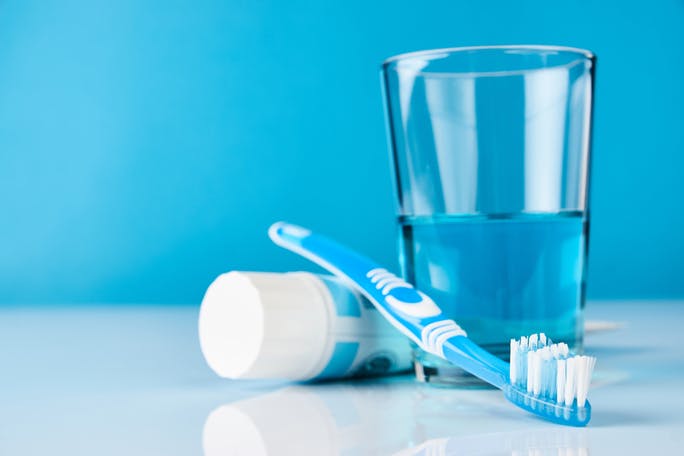
Just like staying active, eating a balanced diet, and getting enough sleep, maintaining oral hygiene is an important component of overall health and wellbeing. Our oral health and our overall health may be more closely connected than you think. In fact, neglecting your oral health can have some surprisingly serious consequences. But there’s no need to worry because maintaining good oral health habits is a simple way to contribute to a healthy lifestyle.1
As you might expect, poor oral hygiene can lead to tooth and gum issues.1 This is because the mouth has bacteria, and if oral hygiene is neglected these bacteria can reach high levels, which can lead to disease.2 Some of the uncomfortable and disabling oral diseases that result from poor oral health include dental caries (cavities), and periodontal (gum) disease.1
But did you know that oral diseases can be related to overall health concerns that go beyond your mouth and throat? Gum disease has been linked to diabetes, heart disease, and stroke, as well as, for pregnant women, premature births and low birth weight.1 Pneumonia and other respiratory diseases can also be linked to poor oral health, as bacteria in the mouth can find its way into the lungs and cause complications.1 New research has also suggested a connection between oral health and Alzheimer’s Disease.3
Saliva has also been studied extensively over the last decade as a potentially accurate and cost-effective tool for diagnosing numerous conditions, including autoimmune diseases (like Sjogren's syndrome and cystic fibrosis,) cardiovascular diseases, diabetes, HIV, oral cancer, caries, and periodontal diseases.4 Often, the mouth is the first place that symptoms of systematic diseases like diabetes and HIV/AIDS may present, via mouth lesions and other oral problems.5
Because we know that oral health and overall health are so closely connected, it is important to maintain good oral hygiene to the best of our ability. The American Dental Association recommends brushing your teeth twice a day, flossing or using another type of interdental cleaner once a day, eating a balanced diet, and scheduling regular dental checkups to maintain overall oral wellness.5 Talk to your dentist if you experience symptoms like red, swollen, or tender gums, gum bleeding, persistent bad breath, loose teeth, or other irregularities that may be signs of disease.5
Maintaining good oral health is important not only for our comfort but also for our overall health. To learn more about good brushing habits, how to keep your teeth strong, and more oral hygiene tips, visit our Healthy Living hub for additional resources.
By clicking any of the links below you will be taken to an external website that is independently operated and not managed by GSK. GSK assumes no responsibility for the content on the website. If you do not wish to leave this website, do not click on the links below.
- Oral Health. Office of Disease Prevention and Health Promotion. https://www.healthypeople.gov/2020/leading-health-indicators/2020-lhi-topics/Oral-Health#5. Accessed 5/6/2021. Referenced text is highlighted in the source material.
- Oral health: A window to your overall health. Mayo Clinic. https://www.mayoclinic.org/healthy-lifestyle/adult-health/in-depth/dental/art-20047475. Accessed 5/6/2021. Referenced text is highlighted in the source material.
- The Surprising Connections Between Oral Health and Well Being. UIC College of Dentistry. https://dentistry.uic.edu/patients/oral-health-well-being. Accessed 5/6/21. Referenced text is highlighted in the source material.
- Saliva as a diagnostic tool for oral and systemic diseases. Journal of Oral Biology and Craniofacial Research. https://www.ncbi.nlm.nih.gov/pmc/articles/PMC4756071/. Accessed 5/06/2021. Referenced text is highlighted in the source material.
- Healthy mouth, healthy body. American Dental Association. https://www.ada.org/~/media/ADA/Publications/Files/patient_61.ashx. Accessed 5/6/21. Referenced text is highlighted in the source material.
